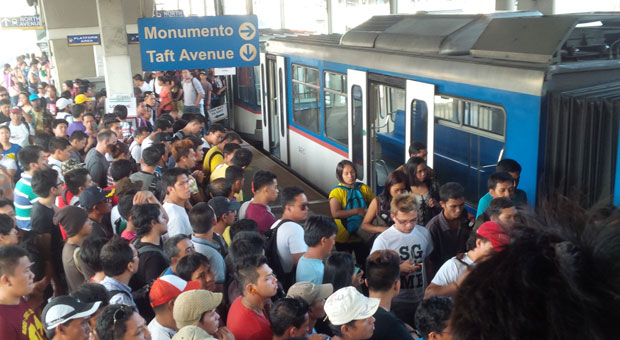PH urged to consider $700M subway

The Philippine government should consider other mass transit solutions to address worsening congestion in Metro Manila, including a $700-million subway system on Edsa to complement the busy Metro Rail Transit Line 3, said an official of Japan International Cooperation Agency. INQUIRER.net FILE PHOTO
MANILA, Philippines–The Philippine government should consider other mass transit solutions to address worsening congestion in Metro Manila, including a $700-million subway system on Edsa to complement the busy Metro Rail Transit Line 3, said an official of Japan International Cooperation Agency.
Shuzuo Iwata, chair of Japan’s Almec Corp. and a Jica project manager, on Wednesday told reporters that a subway rail line on Edsa would be a viable solution as existing mass transit services would not be able to cope with rapidly increasing demand.
“The MRT 3 is small in capacity from the very beginning compared to demand,” Iwata said at the sidelines of the Asian Development Bank’s Transport Forum 2014. “It was a wrong choice of system. If we assume that it cannot be removed, you can only expand capacity [there] by 20 percent.”
That was the reason why the development agency was pushing its so-called P2.6-trillion dream plan to decongest Metro Manila by 2030.
“It’s really unfortunate that people [using MRT 3] have to wait so long…. The waiting time is much longer than the traveling time,” he said.
According to Iwata, final studies have yet to be made, but such a subway system is estimated to cost between $600 million and $700 million, and may be built in five years.
“It’s not expensive for the Philippine economy. The government and private sector can finance that,” said Iwata.
New projects, such as the proposed North-South subway line are crucial in supporting the current pace of economic growth, he added.
Iwata said the proposed subway should be part of several infrastructure deals the government must implement, like the expansion of the Light Rail Transit Line 1 to Cavite and the extension of the LRT 2 line.
The government recently awarded the LRT-1 Cavite extension project under its public-private partnership program. The project is expected to be completed by 2019.
Economic losses that could be attributed to the traffic congestion in Metro Manila today was estimated at P2.4 billion, Jica noted in its study. That figure could balloon to P6 billion a day by 2030 if the government failed to intervene, it added.
Preliminary analysis in the study showed that the average low-income group households have to spend no less than 20 percent of their monthly household income for transport.
Without intervention, traffic demand will likely increase by 13 percent in 2030, and transport cost may be 2.5 times higher, Jica said.
